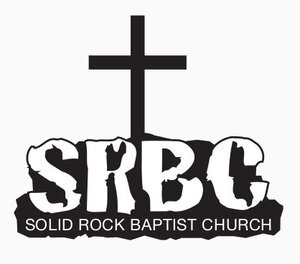What is Advent and Why Should We Observe It?
Today’s Devotion is Written by Tina Duckett
We have officially entered into the Advent Season. For the Christian Church, it is the period of four Sundays leading up to Christmas Day. Just as we observe the Lord’s Supper in remembrance of what Christ accomplished on the cross for us, we observe Advent in remembrance of his initial entrance into the world. You see, advent means “a coming into place, view, or being; arrival.” I’m sure many of you already knew that, but so often we do things year in and year out because it’s tradition or “we’ve always done it that way,” but we’re not really sure why we do it.
The part of the definition that states “a coming into place,” infers this is something new, a position never held before, an existence that is just coming into being, a newness, or an anticipation of an arrival that has been expected, hoped for, awaited. Does this anticipation really begin with Jesus’ birth? After all, his birth could not have taken place without the many years of history that came before that one, amazing day in Bethlehem. In fact, it was those days that brought about the expectancy, the anticipation of a future Messiah. So let’s step back in time, almost all the way back to the beginning.
God said to Abraham, “Your wife Sarah will bear you a son, and you will call him Isaac. I will establish my covenant with him as an everlasting covenant for his descendants after him … But my covenant I will establish with Isaac, whom Sarah will bear to you by this time next year” (Genesis 17:19, 21).
You remember this couple … they received an unbelievable promise from God. It wasn’t just any promise, like “I promise I’ll go to the store on the way home from work,” or “I promise I’ll clean my room — I promise!” No. Those kinds of promises are easily fulfilled by the work of our own hands. This promise given to this couple was something only God could fulfill, only He could accomplish it. You know this couple. Their names in the beginning were Abram and Sarai until the covenant of circumcision was made between God and Abraham (Gen. 17:5, 15), at which time they became Abraham and Sarah, the soon-to-be parents of a son named Isaac, a true miracle baby.
Sarai was barren all her life. When the Lord gave Abram the promise, they were quite old (he was almost 100 years old). Sarai was beyond the “normal” years of child bearing (she was 90). Do you agree she was beyond the years of child bearing? Wow. I’ll say. Having a baby at her age was something that had never happened before. It’s not hard to imagine how much Sarai herself was beyond hoping for a child of her own, that is, until the promise came.
Abraham and Sarah experienced an advent of their own: the anticipation of a boy child named Isaac. Through the lineage of Abraham, another child, whose birth was greatly anticipated, was born: Jesus Christ, Son of God (Matt. 1:16). The promise given to Abraham and Sarah was all about the future promise of Christ. Abraham became the “father of many nations,” just as God promised (Gen 17:5). We celebrate Advent because it’s all about Christ. Nothing more, nothing less.
Additional Reading: Gen. 12:1-5; Gen. 15:1-6; Gen. 16:1-2; Gen. 17:1-17; Matt. 1:1-16
The Meaning of the Advent Wreath
Each candle in the Advent Wreath represents a different aspect of the spiritual preparation needed as we anticipate the coming of the Lord, Jesus Christ.
Week 1 is the Candle of Hope (The Prophecy Candle)
Week 2 is the Candle of Love (The Bethlehem/Manger Candle)
Week 3 is the Candle of Joy (The Shepherd’s Candle)
Week 4 is the Candle of Peace (The Angel Candle)
The center candle is the Christ’s Candle (Purity, the Life of Christ, and the Washing Away of Mankind’s Sin)
